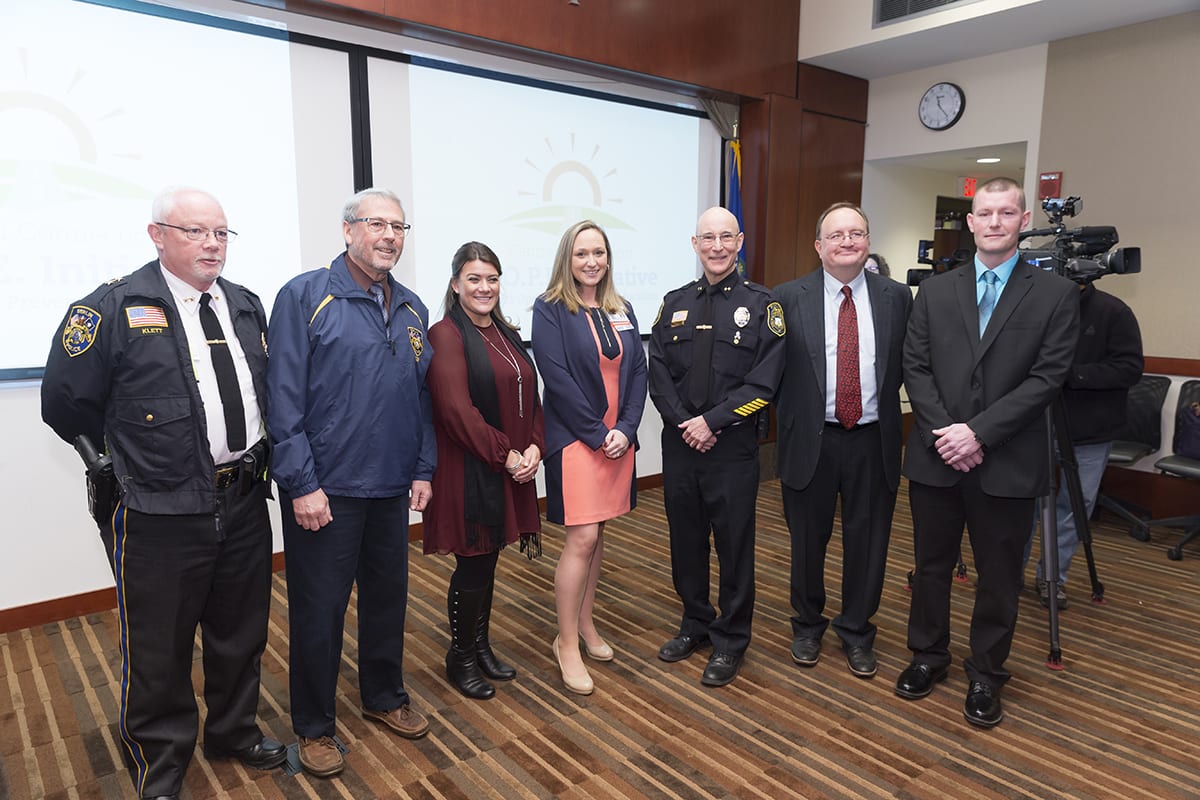Drugs fueled a vicious, seemingly unending circle for Steven Mikkanen.
Using since high school, when he “wanted to fit in,” left him homeless and broke throughout his 20s. He’d steal to support his habit, but multiple arrests left him undesirable to employers and feeling worthless. In 2014, after three arrests in as many days, he finally was brought to Rushford for treatment.
“I wonder if maybe I got into treatment earlier, I’d have avoided some of the guilt and shame I feel,” the Shelton resident told a group assembled for the unveiling of the new Heroin and Opioid Prevention and Education (HOPE) initiative in New Britain.
HOPE — a community partnership between New Britain, Berlin, Hartford HealthCare entities (The Hospital of Central Connecticut, MidState Medical Center and the Behavioral Health Network), the State’s Attorney’s Office and various community mental health agencies — is designed to offer certain opioid users the option of seeking treatment instead of being arrested
“The police can forego a possession or paraphernalia charge for people willing to go into treatment immediately,” explained New Britain Mayor Erin Stewart, adding that anyone with an outstanding warrant for previous criminal charges would need to address those before treatment.
Jessica Collins, RN, regional director of behavioral health at The Hospital of Central Connecticut and MidState Medical Center, says New Britain police officers have all been trained in the HOPE initiative’s message so they can explain what’s available to opioid users facing arrest. If they consent, users would be taken to either hospital where the emergency department staffs are prepared to help.
“They are able to administer (the opioid replacement medication) Suboxone, connect the patients with recovery coaches and assess them in an environment that is stigma-free,” Collins said.
The 34-year-old Mikkanen, who is now engaged to be married and studying full time to be a drug abuse counselor, asserts his life could have been so much different if a police officer gave him such an option.
“I had no idea what treatment was,” he said. “I thought I was weak-willed because I should have been able to stop on my own.”
Without the arrests on his record, he would also be finding it easier now to secure an internship required for his studies.
“I believe with the option of arrest or treatment, most people would at least try treatment. I know I would have!” Mikkanen said. “I like feeling like a decent human being, not like a criminal. It’s essential to me for my long-term recovery.”
HOPE is what Collins called an “innovative intervention” that gives opioid users access to help through “avenues that had previously been punitive.”
“We are committed to helping use medication-assisted treatment on the front lines,” she said of the opioid epidemic that has claimed hundreds of lives in the region in the past few years.
Law enforcement officials at the recent press conference agreed.
“I got into this business to keep our community safe,” said Brian Preleski of the State’s Attorney’s Office. “This affords the opportunity for people who are ready to get clean ….and may save lives.”
City police officers and participating 911 emergency medical services first responders, emergency medical technicians and paramedics will also hand out cards and information sheets that list the multiple services available in the area. Officers at the front desk of area police stations have been trained to provide assistance to anyone looking for a path to recovery.
For more information on Medication Assisted Treatment Close to Home (MATCH), offered through various Hartford HealthCare locations, click here.

